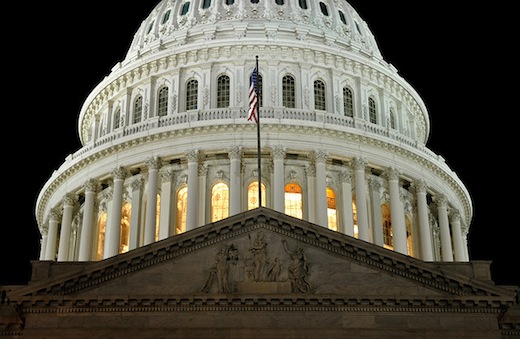
The Senate Foreign Relations Committee narrowly approved the Obama administration move to attack Syria, but the measure appears to face tough going in both the full Senate and the House of Representatives. Polls show substantial public opposition to a military strike on Syria, even “limited” strikes to deter chemical weapons use.
The Senate committee vote was 10 in favor of U.S. military action with time limits added to the original administration plan, 7 against, and Massachusetts Sen. Ed Markey voting “present” – in essence, an abstention. The seven opponents included five Republicans and, significantly, two Democrats, Tom Udall of New Mexico and Chris Murphy of Connecticut.
Markey, a long-term congressman, was just elected to the Senate in June to fill John Kerry’s seat when Kerry became Secretary of State. Kerry is now leading the administration’s drive to attack Syria. Thus Markey’s “present” vote is seen as a noteworthy rebuff to the administration. In a statement after the vote Markey called chemical weapons use a “heinous and despicable act that is outside the bounds of civilized conduct,” but said he was “concerned about the unintended consequences of a U.S. military attack on Syria,” and its potential for “deeper U.S. military involvement in a country inflamed by sectarian violence.”
In the House, a rolling head-count by ThinkProgress shows, as of Thursday morning, 199 representatives favoring or leaning towards a “no” vote on the military strike plan, and only 49 saying they will vote “yes” or are leaning in that direction. Importantly, 152 say they are undecided, and 3 have not made their views known.
Progressive Democrats in the House are currently divided on the issue. For example, Progressive Caucus Co-Chair Raul Grijalva, D-Ariz., says he will vote “no,” while his fellow co-chair, Keith Ellison, D-Minn. is reportedly leaning towards “yes.” A number of prominent peace advocates are reported as undecided.
The Senate is expected to vote before the House next week, raising the pressure on senators. If the war authorization passes the Senate by a close vote, it increases chances that the House will defeat the measure. If the authorization is defeated in the Senate – not beyond the realm of possibility, given the 60-vote requirement – there will not be a House vote. On the other hand, if the Senate votes strongly “yes,” that may push wavering House members to do likewise.
But pressure from the White House may not be enough to offset strong public sentiment against military action, especially if lawmakers continue to receive phone calls, messages, and petitions telling them to vote “no.” Polls suggest the public is not buying the argument that U.S. missile strikes will deter future use of chemical weapons in Syria or elsewhere.
CREDO Action’s petition to Congress opposing U.S. military force has close to 195,000 signatures to date. “It is horrifying to watch the brutal civil war in Syria unfold,” the petition says. “But U.S. military intervention is far more likely to make matters worse, not better. The U.S. should not bomb Syria.” It recommends: “commit to holding war criminals accountable, expand humanitarian aid for refugees, and maintain constant diplomatic pressure for a negotiated end to the conflict.”
MoveOn.org is organizing a campaign pressing Congress to vote “no.” The progressive activist group says its 8 million members have voted overwhelming, by 73 percent, to oppose use of military force in Syria. “In response to the tragic reports of chemical weapons use in Syria,” MoveOn leader Anna Gallant said, “the U.S. needs to lead in the way in engaging with the international community, while rigorously exploring alternatives to military action, including negotiations, economic sanctions, diplomacy, and promotion of humanitarian aid.”
Peace Action is also mobilizing a nationwide campaign to contact Congress, and is asking the public to join its “Thunderclap” on the issue. It says “U.S. military action will only increase the violence and could lead to U.S. engagement in another war in the Middle East. Our response to the use of chemical weapons? Galvanize an international diplomatic response starting with a ceasefire and continued humanitarian support for refugees who are fleeing the civil war.”
In a letter for the opening of the G20 conference in Russia this week, Pope Francis urged world leaders to “lay aside the futile pursuit of a military solution” in Syria. The Pope will host a peace vigil in St. Peter’s Square on Saturday.
The International Red Cross said Aug. 29 that it “is appalled by recent developments in Syria, including last week’s reported use of chemical weapons and the ensuing escalation of events.”
“The suffering of civilians in Syria has now reached unprecedented levels, and there appears to be no end in sight,” said Magne Barth, head of the ICRC’s delegation in Syria. While saying that “any use of chemical weapons by any party would constitute a serious violation of international humanitarian law,” Barth also said, “Further escalation will likely trigger more displacement and add to humanitarian needs, which are already immense.”
Photo: Kevin Burkett/CC

MOST POPULAR TODAY

‘Warning! This product supports genocide’: Michigan group aims to educate consumers

“Trail of Tears Walk” commemorates Native Americans’ forced removal

After months of denial, U.S. admits to running Ukraine biolabs

Ohio: Franklin County treasurer attends Netanyahu meeting, steps up Israel Bond purchases

Hold the communism, please: SFMOMA’s Diego Rivera exhibit downplays artist’s radical politics






Comments